Dear Mayor Gordo, City Council members and Commissioners,
The State Department of Housing and Community
Development provides guidance to cities on revising their Housing Elements,
noting that California law requires all cities in California to “adequately
plan to meet the housing needs of everyone in the community.”
This broad mandate is too often narrowly interpreted to mean compliance with
the minimum standards needed for State certification.
The Pasadena Affordable Housing Coalition,
made up of a widely representative group of community and civic organizations,
urges the Planning Commission to go beyond demonstrating that Pasadena has
the theoretical capacity to meet our city’s Regional Housing
Needs Assessment of 9,429 total units. The
dominant theme of the City’s public outreach meetings has been the demand for
effective solutions to the affordable housing crisis facing our rent-burdened
tenants and unhoused residents.
To that end, the Housing Element must be a
plan that goes beyond potentially allowing 5,974 units of
affordable housing (to be added in Pasadena over the next eight years) but
instead provides a comprehensive approach to achieving that
goal.
Tonight thousands of Pasadenans will go sleep
worrying about their housing security – and hundreds more will not have a place
to sleep at all. It is cold comfort to them to offer a plan that in addresses
their needs in concept, but not in
reality.
The Coalition’s member organizations support
a comprehensive set of recommendations based on three key overarching
principles to ensure the plan not only meets the minimum standards of State law
but most importantly meets the needs of Pasadena’s families, seniors, workers,
disabled and low-income renters. These principles are:
·
Make
affordable housing easier and less expensive to build in Pasadena by removing the myriad local barriers that
inflate the costs and discourage development of affordable housing.
·
Provide
augmented local funding to help bridge the gap between the cost of providing
affordable housing and the current resources available. Pasadena cannot fill the gap on its own, but
can ensure that Federal, State, regional, private and non-profit resources can
be leveraged to maximize the supply of local affordable housing.
·
Provide
housing security to Pasadena’s rent-burdened tenants, recognizing the dire crisis facing them now
as they cope with rising rents, inadequate legal protections against evictions
and harassment and often substandard living conditions that go unreported for
fear of retaliation.
Making affordable housing easier and less
expensive to build in Pasadena starts
with common sense policies that include enabling construction of
deed-restricted affordable housing by right on congregational land and in
commercial zones; removing parking minimums citywide; incentivizing the
building of accessory dwelling units (ADUs); and streamlining the cumbersome
processes that impede the development of affordable housing as well as
permanent supportive housing for unhoused residents.
Consideration of an affordable housing
overlay on congregational land has been needlessly delayed and if not pursued
immediately should be among the first priorities for implementation in the
Housing Element. Given the changing face of retail, development “by right” of
adaptive reuse with affordable housing should also be a critical priority.
ADUs can provide “elegant density” that not
only increase the housing supply overall, but help low-income owners and young
families afford their mortgages. Finally, Pasadena should recognize that
tortuous entitlement processes don’t produce equitable outcomes. Pasadena
should set high standards -- and grant permits to those who comply.
Providing augmented local funding to help
bridge the gap between the cost of providing affordable housing and the current
resources available is
the only way to adequately leverage the resources from Federal, State,
regional, private and non-profit resources. Using redevelopment set aside for
affordable housing, Pasadena compiled an exemplary record of supporting local
affordable housing.
Since its abolition in 2011, the only local
stream of funding for affordable housing has come from housing developers
who’ve chosen not to provide onsite units to meet their inclusionary
responsibilities. This is grossly inadequate to the need. Voters in other
jurisdictions including Los Angeles, Culver City and Santa Monica have approved
local taxes or bonds.
As Pasadena considers meeting its overall
fiscal needs, affordable housing should be a paramount goal to maintain our
character as an inclusive and diverse community dedicated to safe and decent
housing for all our residents.
Enhancing housing security for Pasadena’s
rent-burdened tenants is
necessary because renters’ lives can’t
wait for the city to meet the pent-up demand for additional affordable housing
options. Just as developers often require grants and below market financing to
make their projects viable, low and very low income tenants often require
subsidies and protections against undue escalations in housing costs to make
their rents affordable. No one knows whether the State’s program for
forestalling mass evictions after the expiration of the present eviction
moratorium will be adequate.
Even if mass displacement does not
immediately occur, over the past two decades thousands of long-term residents,
many of them multi-generational Pasadenans, have been involuntarily displaced
out of the city. This tragedy has fallen most heavily on people of color,
particularly the historic Black community in Pasadena, which the 2010 Census
showed had been reduced by 24% in just ten years. Given the drastic escalation
in rents and home values during the last decade, a similar or greater decline
is to be expected upon the release of the 2020 Census figures.
To stem the tide of displacement, the city must
fashion remedies to meet not only its RHNA goals - as important as they are -
but the affordable housing concerns of its existing residents-over 60% of whom
are renters.
Our coalition urges the City to
recognize the dire crisis of its existing residents with means
adequate to the challenge, adopting a comprehensive set of tenant protections
including rent control, just cause eviction rights, adequate legal
representation for low-income tenants and a citywide rent registry.
If any of these policies are not included in
the Housing Element, the City must propose adequate alternatives for providing
housing security to ensure Pasadenans are not forced out of their homes, their
neighborhoods, their children’s schools and in some cases out onto the streets.
These three principles and the policies we’ve
enumerated in this letter represent a framework for development of a
comprehensive Housing Element. Our Coalition has extensively discussed a more
detailed set of policies and programs which are all vital to a balanced and
realistic plan for housing affordability in Pasadena. We ask the Commission
members and City staff to give thoughtful consideration to each and every one
of our recommendations for inclusion in the Housing Element.
We appreciate this opportunity to provide the
views of hundreds of informed and active local community members who insist
their City “adequately plan to meet the needs of everyone in the community.”
Respectfully submitted,
The Pasadena Affordable Housing Coalition
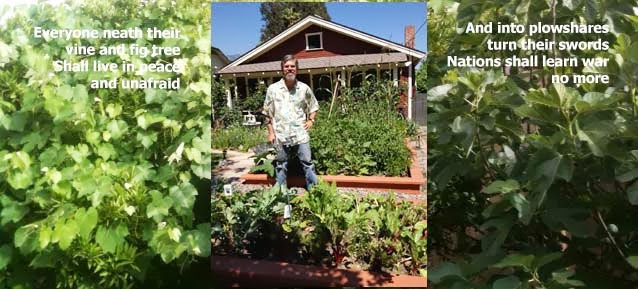
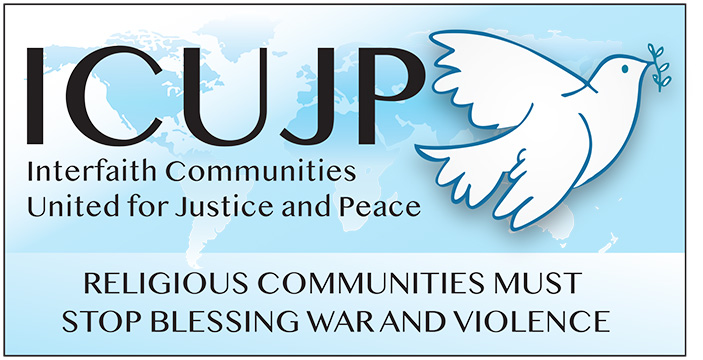
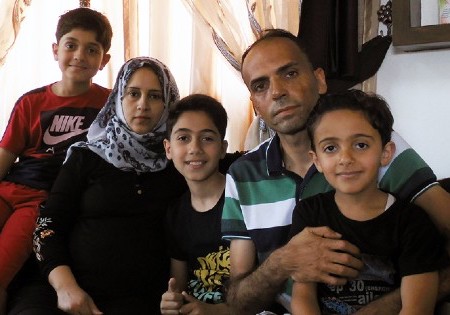
 Muna Abu Sneineh is a human rights consultant and lawyer committed to help bring justice to oppressed and vulnerable children in Palestine and globally. Muna joined DCIP as Chair of the Board in 2020, having previously served as a board member. She began her legal career focusing on human rights in Palestine and regionally. Her areas of expertise are in child justice, children in conflict with the law, child victims of violence, gender equality, and rights of persons with disabilities. Muna has served as a legal and human rights consultant and trainer with a variety of international and local organizations.
Muna Abu Sneineh is a human rights consultant and lawyer committed to help bring justice to oppressed and vulnerable children in Palestine and globally. Muna joined DCIP as Chair of the Board in 2020, having previously served as a board member. She began her legal career focusing on human rights in Palestine and regionally. Her areas of expertise are in child justice, children in conflict with the law, child victims of violence, gender equality, and rights of persons with disabilities. Muna has served as a legal and human rights consultant and trainer with a variety of international and local organizations. Shaina Low (she/her/hers) is an Advocacy Officer with DCIP. Her experience with organizations in the U.S. and Palestine/Israel has included fundraising, working with children, guest lecturing at high schools and colleges, organizing and leading advocacy tours, and bringing delegations to the region. Her legal research has covered topics including forcible transfer, the international community’s obligations under international humanitarian and human rights law, and the rights of prisoners and children. Shaina holds a BA in political science from Columbia University and a JD from the City University of New York Law School.
Shaina Low (she/her/hers) is an Advocacy Officer with DCIP. Her experience with organizations in the U.S. and Palestine/Israel has included fundraising, working with children, guest lecturing at high schools and colleges, organizing and leading advocacy tours, and bringing delegations to the region. Her legal research has covered topics including forcible transfer, the international community’s obligations under international humanitarian and human rights law, and the rights of prisoners and children. Shaina holds a BA in political science from Columbia University and a JD from the City University of New York Law School.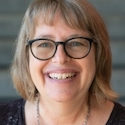 Jennifer Bing has worked at AFSC since 1989, serving in various capacities in its Israel-Palestine programs. She directs the AFSC
Jennifer Bing has worked at AFSC since 1989, serving in various capacities in its Israel-Palestine programs. She directs the AFSC

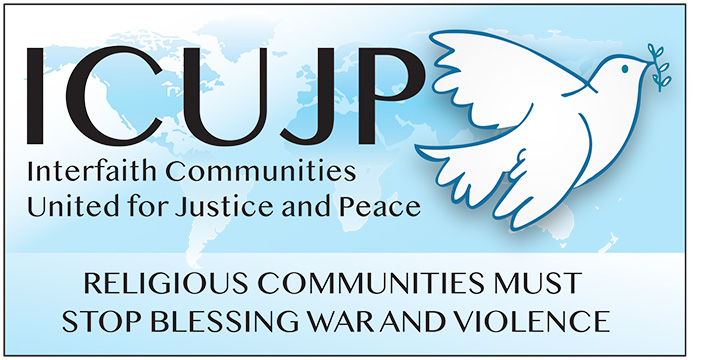
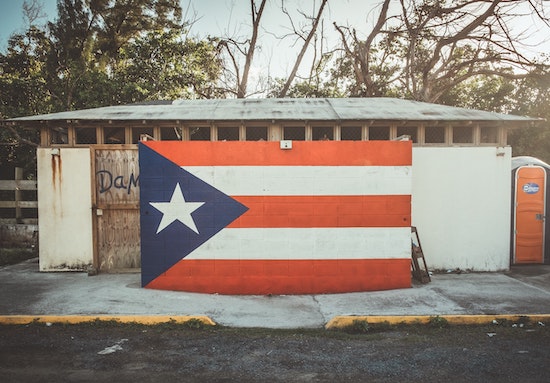
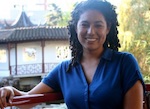 Nicole Hernandez (they/them) leads Puerto Ricans in Action (PRiA) in Los Angeles. PRiA was founded in the summer of 2016 to protest against PROMESA - the Puerto Rico Oversight, Management, and Economic Stability Act (H.R.5278) passed by the U.S. House of Representatives. PRIA has continued to hold protests, marches, educational and disaster recovery campaigns ever since. Most recently, the group embarked on an archiving project titled "Calle de La Resistencia Diaspora Archive." PRiA's mission is to be the central organizer for Puerto Ricans across Los Angeles County.
Nicole Hernandez (they/them) leads Puerto Ricans in Action (PRiA) in Los Angeles. PRiA was founded in the summer of 2016 to protest against PROMESA - the Puerto Rico Oversight, Management, and Economic Stability Act (H.R.5278) passed by the U.S. House of Representatives. PRIA has continued to hold protests, marches, educational and disaster recovery campaigns ever since. Most recently, the group embarked on an archiving project titled "Calle de La Resistencia Diaspora Archive." PRiA's mission is to be the central organizer for Puerto Ricans across Los Angeles County.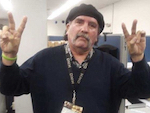 Lawrence Reyes is a longtime human rights and media democracy activist. A member of the Young Lords Party and Boricua, he overcame drug use, incarceration, and being houseless on the streets of Brooklyn. Lawrence earned a degree in human behavior from Brooklyn College and in substance abuse counseling from UCLA Extension. Now a Senior Community Mental Health Worker for LA County, he is obtaining a master’s degree in psychology with a concentration in trauma at Antioch University. Through his work in the Puerto Rican Alliance, he has long been committed to coalition building, particularly among Black, Brown, Native, and other communities of color. Lawrence currently represents KPFK as a Local Station Board member and serves as a Director Trustee with the Pacifica Foundation. In addition, he is a Board member for WERC, an organization offering employment training to formerly incarcerated people. As a father, he is deeply engaged in the upbringing and education of his son and other youth, particularly in addressing mental health challenges and services within the LA Unified School District.
Lawrence Reyes is a longtime human rights and media democracy activist. A member of the Young Lords Party and Boricua, he overcame drug use, incarceration, and being houseless on the streets of Brooklyn. Lawrence earned a degree in human behavior from Brooklyn College and in substance abuse counseling from UCLA Extension. Now a Senior Community Mental Health Worker for LA County, he is obtaining a master’s degree in psychology with a concentration in trauma at Antioch University. Through his work in the Puerto Rican Alliance, he has long been committed to coalition building, particularly among Black, Brown, Native, and other communities of color. Lawrence currently represents KPFK as a Local Station Board member and serves as a Director Trustee with the Pacifica Foundation. In addition, he is a Board member for WERC, an organization offering employment training to formerly incarcerated people. As a father, he is deeply engaged in the upbringing and education of his son and other youth, particularly in addressing mental health challenges and services within the LA Unified School District.
